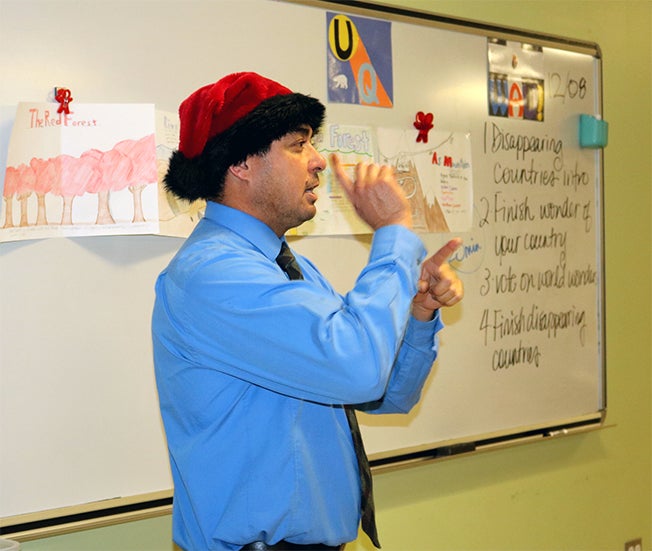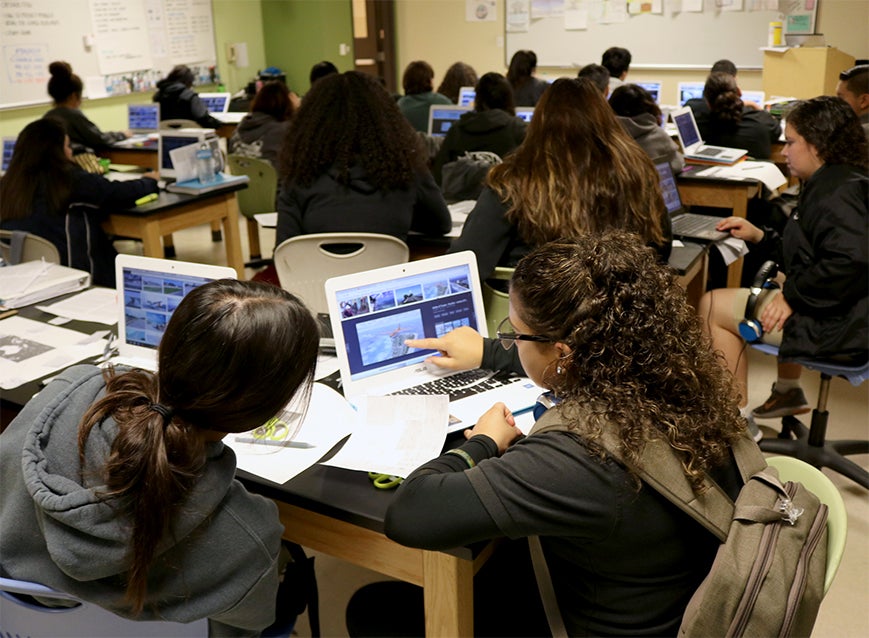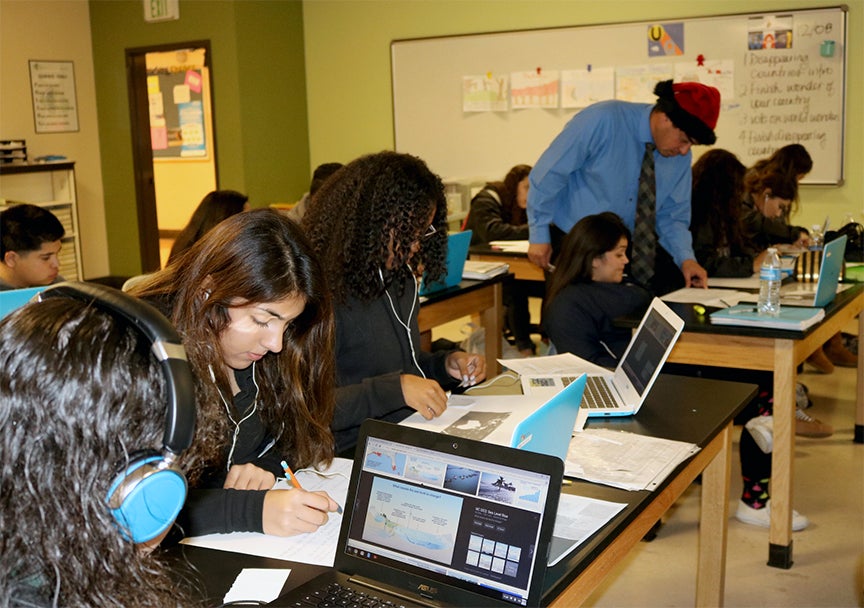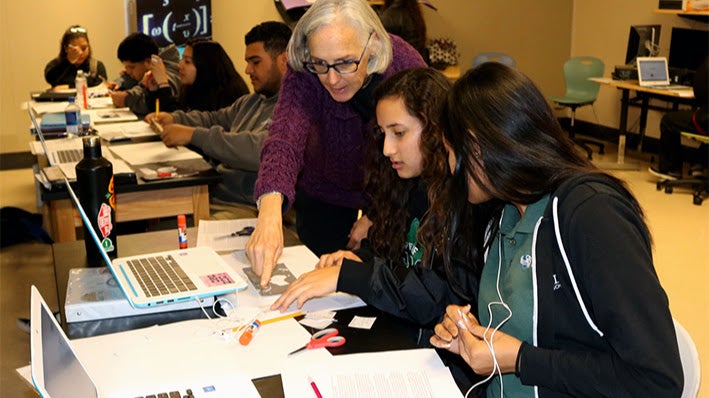The World Around Us
“You can move people, but can you move a culture?” asks Dean Zrucky, an educator at Port of Los Angeles High School (POLA).
His students are looking at photos of exotic island nations like Fiji, Maldives, Karibati, and Tuvalu. These nations have been disappearing for decades due to rising seas; seas that will continue to swallow the islands until they cease to exist. This may happen in just a few more decades. Students are faced with tough questions from Mr. Zrucky: How does a nation address its impending extinction from climate change when it has no control over the policies of industrialized nations who produce greenhouse gases? What does it mean for a culture to go extinct?
Students are exploring these questions in a unique new class, ‘The World Around Us’, that delves into global challenges such as refugees, human trafficking, poverty, and child soldiers. High school students often become aware of global issues through social media, but more than a headline is needed to develop a deep understanding of the complexities of human society. In order to become better citizens of the world, it is critical that students have a chance to explore, discuss and develop their own opinions.
Mr. Zrucky was inspired to create this class when Sir Partha S. Dasgupta presented “The Idea of Sustainable Development” for the Tyler Prize for Environmental Achievement award ceremony at USC last spring. Sir Dasgupta challenged the audience to recognize that we can only approach a sustainable world by examining the inner weaving of economics, sociology and environmental relationships together. Only then can we begin to create a sustainable tapestry.
Back in class, Mr. Zrucky wants his students to understand that these small island nations are more than just a beautiful place to take a vacation. Their citizens are deeply connected to the land and natural resources of the islands, with generations of families supporting themselves with subsistence fishing – a skill that does not easily transfer to a new country.
He connects climate refugees to the personal experiences of students with roots in Central America whose families left behind ancestors, traditions, and connections to the land to build a life in the United States. The discussion evolves into questions about the responsibility of nations and society to accept refugees and the restrictive refugee policies that many nations have in place today. Should these policies shift for new climate refugees?

Passion drives educators to go above and beyond; to challenge their students and ensure they are prepared for the future. 21st century skills require that preparation include both breadth and depth with an understanding of global influences and social, economic and environmental interactions. The ‘World Around Us’ class that Mr. Zrucky created has sparked a significant change for his group of students. Students registered for the class without knowing if they would like it and ready to drop it if it wasn’t a match. They not only stayed but also became very engaged, confident that all students should take the course.
Debbie, a senior at POLA, shared one way the class has impacted her, “Knowing there are different opinions, ways of changing and solving problems is really important with all of the difficulties all around the world.” She noted that the study of human trafficking effected her the most and expressed, “I think if I were in that person’s position, I would want someone to be supportive.”

Kiara, also a senior, expressed appreciation of Mr. Zrucky taking the time to teach the class and to provide different perspectives on what is going on around the world. She shared, “I want to at least try to stop conflicts going on around the world. This class gave me a perspective in life to not complain about little things. People deserve a better life than this.”
Linda Chilton, Education Programs Manager at USC Sea Grant, collaborated with Mr. Zrucky in developing content for the class on the topics of sea level rise and climate change.
“As I communicate about sea level rise, I think locally, but in preparing materials for this class, my thought process shifted to thinking about the displacement of entire countries – their culture, government and way of life, due to choices beyond their control,” said Ms. Chilton. “The challenges they face as climate refugees are monumental.”
Understanding struggles that people endure in our shared world, will help these young adults take a more active role in society and strive to seek solutions of fellow human beings everywhere.

